A centrifugal force binds them. Gweng to Madam. Madam to Gweng. They dance on a Friday mid-morning, and sunlight licks the concrete courtyard at the center of the building with its large burning tongue and sets them aflame. Their shadows intertwine. Gweng’s red skirt blooms, long black legs skipping underneath as Madam’s leather belt raises its head and bites skin with a flat sound, paa, paa, paa. And from the dark hole of Gweng’s mouth comes screams, and words you do not understand. Maybe she is calling her mother; maybe she is calling God. Maybe she is cursing. You feel irritation at her for not taking this beating as she should: quietly. She did say terrible things.
They rip apart and Gweng flies, a stone off a slingshot aimed at the gate. And in that moment she exits your life. Later, you will search your memories for her, you will squint into the past, you will scour through it as one does rice for pebbles, but you will not find even a blurred image or an echo of her.
She escapes and you remain behind, in the shadow and under the weight of five floors of rental housing. Above, on the verandas facing the courtyard, househelps and stay-at-home mums who left their washing, cooking and minding of babies to witness Gweng’ beating are now whispering. It is from their angry eyes that you realize you have done something wrong. You begin to tremble where you squat watching Madam wash her hands. You do not resist when your househelp Scola grabs you by the arm and forces you indoors.
There, behind glass panes separating you from the good children, from life itself, you are kept company by your dread. You know exactly what will happen when Maami returns from her office job in the evening. She will take off her shoes; she will wash her face; she will pull out her brassiere from under her blouse through an armhole; she will settle down to her evening meal; she will ask Scola for a glass of water and switch on the red Greatwall TV for the nine o’clock news. Then, Scola will ensure you receive the beating of your life.
*
A story is told:
The mothers said to their children, do not go to the forest in the sky. The fathers said to the children, go anywhere but the forest in the sky. The grandmothers and grandfathers too. But the children giggled because surely, there was no forest in the sky.
Then, one day, the children went to fetch water at the river, something they did every day. They knew the path very well, but you know how the world changes. Trees pull up their roots and walk; mountains fall into valleys; rivers go visiting their friends in faraway lands. The children got lost.
One of them said, let us wait here; the elders will surely come and find us, but the others were eager to explore this new, strange land. They left the familiar riverbank and went to see where all the mist covering the ground came from. As though the clouds had fallen from the sky, they said one to another.
The ogre found them eating from his orchard and let them engorge themselves until their tummies swelled with mango. When they were languid, he roared and jumped from his hiding place. He pursued them everywhere in that forest, his footsteps thundering across the sky, his eyes flashing lightning as he sought them among the clouds, and the children’s tears rained down on earth.
He is still seeking and eating them one by one. And they are still crying.
*
Gweng and her people entered your consciousness, one day, like figures emerging from the distorting white heat of desert. You do not understand how they could have been present in your life all along, carrying such stark difference, yet unnoticed by you. You form them in your mind as the sum total of very black and very tall. Noticing them is akin to discovering the proper pronunciation of a familiar word.
When you ask Scola about them, she spits two words at you: ‘Sudanese’ and ‘refugees’. Words you move about in your mouth, testing with your teeth, rolling on your tongue.
The strong smell of fish emanating from Gweng’s house next door leaves Scola both nauseous and cantankerous. She bangs pots and shouts and pulls your ears for real and imagined transgressions. Your own fish, filleted and fried in onion and tomato, smells nothing like fish.
There are many foods Scola finds revolting – jam which she says looks like old blood and the sticky mrenda people in Western Kenya eat – snail vegetable, she calls it. You understand Scola is like this because she grew up in ushago, in Meru, where she ate only maize, beans and potatoes every day. Her tongue refuses to venture beyond its white fence; her stomach rejects the unknown. You pity her: she will never know the cold painful sweetness of ice cream, the sour tingle of maziwa mala or the salty cottoniness of popcorn. You know you must hide your six-year-old delight from her insular judgment, be it the white, chalky joy of Patco sweets you sneak into bed and crunch into your teeth under your blanket or be it Gweng.
Long-necked Gweng. Her neck lifts her round face like a sunflower. You imagine rubbing her black skin to a shine with paraffin and crumpled newspaper the way Maami has Scola clean the glass panes on the windows. You want Gweng’s laughter, that crackling outburst, a large bird calling from its perch on a telephone cable above your street. You want her red dress and her orange dress because they make her seem aflame. You want her name with its sharp curtailed sound at the end, so much better than the one you inherited from your grandmother.
Watch her dodge the ball in a game of Kaati. Standing between the two ball throwers, her legs are slightly bent at the knees and her skirts lifted. She is a wound-up spring. Her eyes shine. Then the throws begin, and the two ball throwers try in vain to hit her with the ball. It moves in a blur and her body swims around it, curving backwards and out so that the ball rips just past her belly. She flies; she slides; she twists; she is boneless. The throwers fling faster and harder. Gweng throws herself against the dusty ground. Your insides jump up to your throat; you could explode from the tension of these moments. Gweng’s team is in a frenzy. Their bodies mimic hers around imaginary balls. She wins after fifty throws. Everyone goes mad. You scream yourself raw.
Your older brother Kim has always included you in his boy games. You have mastered the Mfaraa: how to set the thin wire wheel moving; how to flick the stick attached to it by string to keep it upright and spinning; how to bend it to your will so that it takes sharp turns. You know tree climbing and you know Banoo: you hold your mottled marble at the tip of your index finger, draw the finger back and release to knock your opponents’ marbles tidily into the Banoo hole.
But Kim cannot teach you how to play girl games: not skip rope or Bladaa, not ChaMama or hopscotch. You receive no cheers in Kaati. The other girls do not want you in their teams.
You orbit Gweng and her Sudanese friends as they move across the street, from their universe into yours and back, joining games as they please then withdrawing into a tight cluster of whispered secrets against one of the walls of the buildings in your street. You want their strange, fast language. You want to cut off others with foreign words as they do, and laugh large, all white teeth on display. But they will not admit you or even notice your longing.
One afternoon, the tailorwoman at Ebenezer Tailoring sets her Singer machine spinning and whistling. Then she leans towards the customers sitting on a bench in her shop waiting for their clothes. She has heard from someone who heard from someone else that the Sudanese escaped their country with bagfuls of gold.
‘They don’t live like people who have suffered,’ chimes in the electronics repairman from next door.
You know that refugees live in tents made of polythene bags and sticks, and have the look of being startled out of sleep. You’ve seen them on CNN. Dust blurs their emaciated faces, and they are always staring into the distance helplessly as their bodies wilt into skin and bone. They escape war on godforsaken roads with the remnants of their lives balancing on their heads: pots, rolled-up mattresses, bits of clothing. Their children have flies licking sores at the corners of their mouths. Their eyes are large in their dry, leathery faces. Time decays as they walk. When they arrive in Nairobi, Gweng is four years behind in school and in the same standard one class as you. Thinking of all Gweng must have endured brings tears to your eyes in the middle of the night, and you cry quietly into Scola’s back in your shared bed. You wish you had suffered as much and bite down on your tongue to feel some of Gweng’s pain.
You sneak up to the open kitchen window of her house one afternoon, hide under its jutting sill and listen until you are certain there is no one within. You rise to your toes and take a peek. You don’t expect to see gold – Gweng and her family live six in this two-bedroom house – but what you do see is disappointing and not very different from your own: stainless steel sufurias, a cooking stick jutting out of a basin piled high with dirty dishes, a dying charcoal stove. The room is a cave of soot. A low stool stands guard in the corner, two dips worn into its wooden top to accommodate buttocks. This is where Gweng’s mother sits, orchestrating her meals.
‘What are you doing?’
You jump. A light brown face is staring down at you from between two vertical rods in the stairs’ bannister. You become conscious of your wrinkled clothes. You already have two patches of dirt on your trousers’ knees. She is wearing lace-fringed socks and red pumps and a dress Maami would never let you take outside unless it was a Sunday and you were headed to church.
‘You were spying,’ she says and beats her index finger on her middle finger in the universal gesture for you-are-in-trouble.
You fold your arms across your chest. You don’t like this one but feel the need to explain. ‘I was looking for my friend.’
The girl frowns. ‘That long Sudanese is your friend?’
‘Yes,’ you hear yourself say even as your little heart clenches. Then you flee, and your rubber Bata slippers go tapa tapa tapa on the concrete all the way to the gate.
*
Gweng notices you only once. You are furiously digging a hole on the other side of the street from her, determined to play some game of your own making because Kim and his friends will not play with you today. Gweng beckons and you drop your stick and wipe your muddy hands on your skirt. Your throat is dry as you bring your ear close to her mouth.
‘You are showing everyone your red panties. The boys are laughing at you,’ she says.
Your heart falls stone-heavy into your belly. The only way to save face is to linger and pretend to the world you are not soaking in shame, dripping with the mud of it.
Besides, a new want has wiggled into your body. Gweng and her friends each have a handmade doll, soft bodies of leftover kitenge print cloth, with stitched-on black faces, buttons for eyes and thick woollen string for hair. Your want is an intense bittersweet taste in your mouth, the bite and sugar of tamarind. Your want is a tightening knot in your belly.
Gweng frowns when you ask. ‘You can’t buy these,’ she says. ‘Our Auntie made them.’
Maami has promised you one of the dolls on the shelves of Safeway supermarket, but your birthday is months, no, centuries away. And so you steal bits of cloth from among Maami’s things. You tuck them into your panties and smuggle them out of the house and out the gate. You are breathless as you pull down your underwear. But Gweng will not touch your bits of hope. They have been in dirty, stinking places.
*
You and Kim are prone to transgression and misbehaviour, and this is why Maami has a leather belt hanging on a hook behind her bedroom door. It was you who broke her red love-heart clock after she said never to play with it. You who tried to iron a brand-new Sunday-best and burnt a hole in its hem. You who wets the bed you share with Scola, night after night. You who commented about Kim’s yellow shoes being girly and made him refuse to wear them ever again, even though Maami spent three-thousand shillings on them. There is a badness in you. Long before you betray Gweng, you crush a chick with a pole and hear its bones crunch. Then you prod it with a toe and squat and prod it with a finger. It refuses to get up. A strange, unsettling feeling seizes you. You run to Scola and nag her into following you back to the chick.
‘This girl, don’t you know what you have done?’
She is not annoyed. Her eyes are full of pity. You understand she cannot save you from what you’ve done.
‘You have removed its life,’ she says.
You look around for the chick’s life.
‘No. You cannot make it come alive again.’
You shake your head. You step back. Urine snakes down your leg and pools in your shoe.
*
Another story is told. You have heard this one, no? It’s a running joke in the newspapers:
Once upon a time, when God was an old man, he decided he was quite tired of his wife. She had the unfortunate problem of a sharp tongue. With it, she had reduced him to a patch of shade outside his own hut. And so, in retaliation, he dug up some clay and made humans so that they would love him and sing his praises day and night. But as soon as he put them in his kiln to bake, his wife’s stew of the previous night began boiling in his stomach, and he dashed into the latrine. By the time he emerged again, his first humans were burnt to a crisp black. He clucked his tongue and threw them over his shoulder, and ever since, they have had only his back to look upon.
*
The light-brown girl from upstairs is Ivy. You become friends because she is too clean to play Kaati or Bladaa or skip-rope. When you are knocked out of a game of Kaati after two throws, she is standing at the gate, eyes darting this way and that after the children in the street.
‘I have many dolls,’ she says.
You think she is bragging, but quickly recognize that this is an invitation and an apology for upsetting you the other day.
‘How many?’
Five. And they eclipse anything you have ever wanted. Ivy pulls her dollhouse into the fifth-floor veranda to let you play (because her mother has said to never, ever allow anyone into their house).
Her dolls are blond and white and slender. They have joints at the knees and elbows, not just at the hips and shoulders. They blink. They sit on the dollhouse’s miniature chairs, and if you pull a string in their backs, they speak. Each comes with five dresses and combs that go into neat little drawers. You work hard at not looking surprised or jealous.
‘My daddy bought it for me,’ says Ivy.
Perhaps she knows about your family; perhaps she does not. Her pride cuts you with something hot. She has touched a spot you protect with kicks and bites. You could lunge at her and scratch off her face. Your voice drops to a growl.
‘You don’t have a father.’
She giggles and recklessly pushes you at the shoulder. ‘Everyone has a father, silly. Even if he lives somewhere else.’
Her gesture, even more than her words, this show of easy playfulness, this repayment of kindness for your intended malice, this off-hand forgiveness, this is what makes you tell her things, many things.
*
What you hear Gweng say is nothing new. You too have heard some version of it before, from the househelps. But as you will come to understand much later, Ivy’s mother cannot beat the househelps.
They do not notice you as they huddle at the communal water taps, their bodies like question marks over the washbasins. You are squatting under the stairs, watching them battle clothes into submission, drowning them in the frothy seas of wash water.
‘The children have to call her Madam as if she were not their mother.’
‘At ten p.m., drunk and shouting like madness.’
‘Every week, a new man in the house.’
‘Doesn’t she care about the children?’
To Ivy, you add, ‘And then Gweng said your mother is a malaya.’
This is meant to be your secret, something to bind you to each other. With it, you will exclude all others. But Ivy’s face crumbles as if she were about to cry, and she goes into her house. Madam is smiling when she emerges a moment later. She pats you on the head.
‘That Sudanese called me a prostitute?’ she asks as she plucks something out of your hair as if you were dear to her, and she could not stand to have you untidy. ‘Go bring her to me,’ she says.
You let her whisper guide you down five flights of stairs, across the concrete courtyard and into the wild that is your street. Your brother Kim and his friends are throwing stones into a muddy pothole just to hear it gulp them, chubuliu! The twins from the third floor are tiptoeing towards Mzee, the goat who likes to graze on the street’s garbage heaps, to try climb his back. And here are the unemployed men who sit on a bench outside KwaJoseph General Shop, buying cigarettes by the stick, throwing down cards with gusto in a game of Karata and whistling at any swinging behind that goes by. You swim through this melee and narrowly miss collision with a man flying down the street on a bicycle, his arms shaking from the effort of taming his two-wheeled beast and its load of bread crates. You skip over a perennial tickle of greenish muck, a union of wash water from the buildings on the street. Madam’s voice compels you on.
You will be twenty years too late in realizing you should have done anything but lead Gweng to her judgement. You should have fled and hidden behind Scola. That giant of a woman would have protected you from all your mischief, albeit after pulling your ears hard. But no, you are full of badness, occupied by the devil himself.
‘You know what people are calling you?’ Scola asks when she imprisons you indoors to await Maami’s punishment. ‘A big, empty debe. Who taught you such bad manners?
She looks at you the way Maami will this evening, as though she does not know you and you do not belong to her. You shout nonsense when Maami whips the gossiping devil out of you. Tomorrow other children in the building will laugh at the sounds you are making. Kim will illustrate your skipping, dodging and twisting to them. You will hide under the stairs again.
‘I won’t do it again,’ you plead.
But Maami knows you still have much more pain to give and receive in this life. And she keeps whipping you to save you from yourself.
‘You will return that girl’s dolls, you hear? First thing tomorrow morning,’ she says.
Up you go early the next day, climbing five flights of stairs. Madam comes to the door with a smile as broad as the leaves of a money tree, then wilts and shakes her head when you hold out Ivy’s dolls.
‘But you can have them as long as you like.’ She calls into the house: ‘Ivy, Kendi has come to play.’
This is what panic and grief look like. A woman gripping the frame of her door, shaking her head until it appears not to be a part of her body. You come to pity her. No other woman you knew back then wore trousers or stick-on nails painted red. She left the idlers at the general store spitting and cursing when her manual transmission Nissan pickup charged up the street with a plangent roar. Only she wore lipstick in the broad daylight. And had boyfriends in the space a husband had abandoned. A woman untamed. Every day she contended with a world that had no place for her. You see that now.
But you also remember that she had a basin of hot water brought down to her from the fifth floor after she beat Gweng. You remember her lips pulled back in a snarl as she made a show of washing her hands with bar soap, then washing-powder, then disinfectant.
Image © Evelyn Berg
The post Girl Games appeared first on Granta.

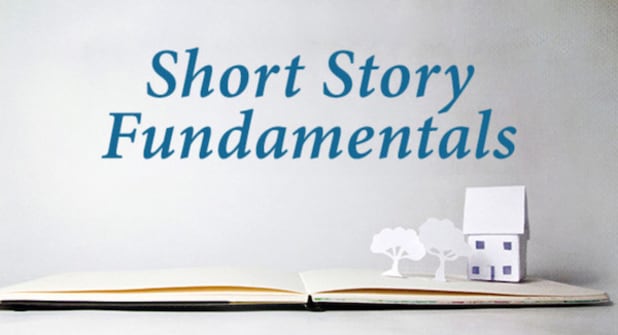
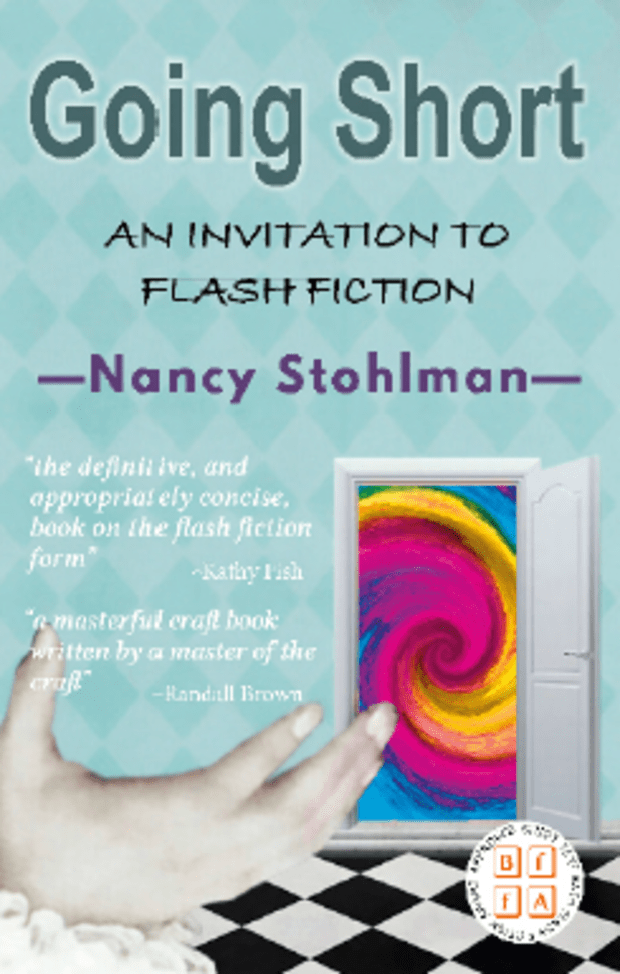
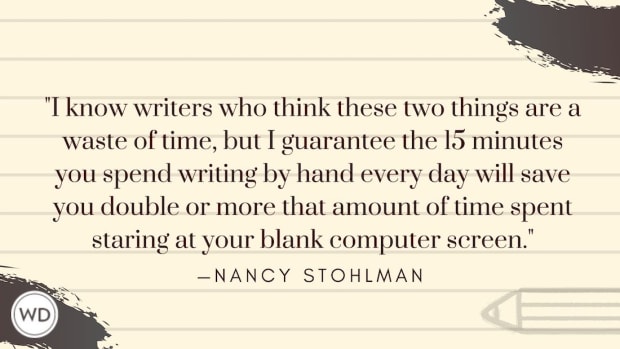
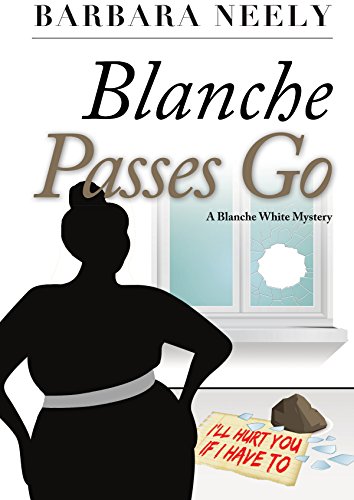
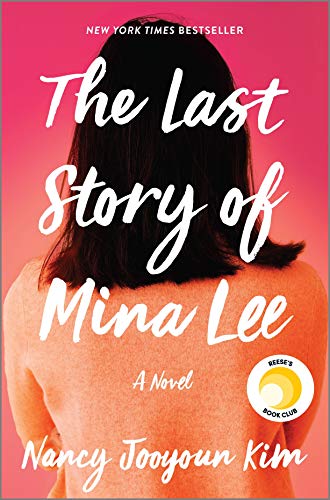
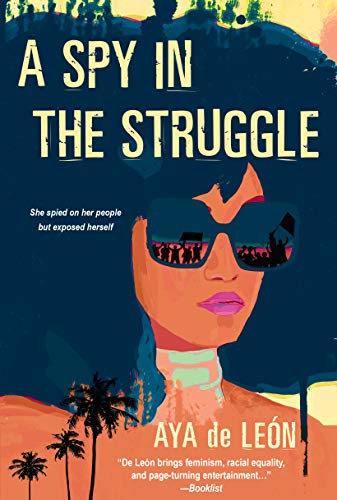
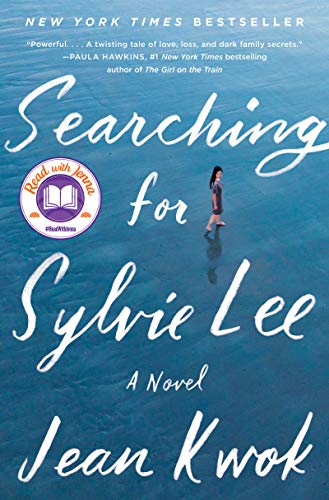
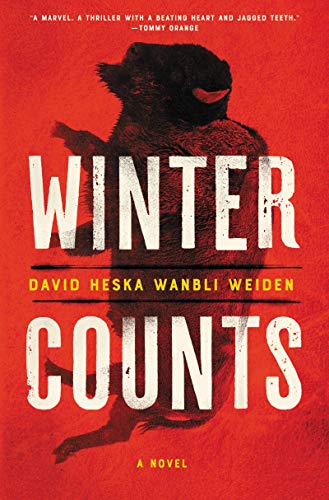
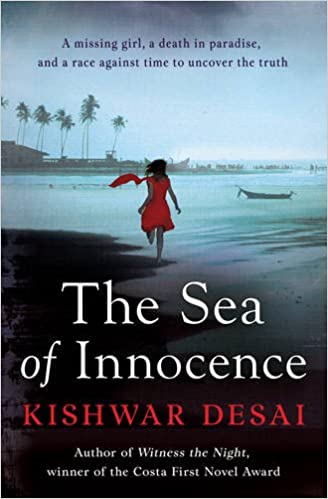

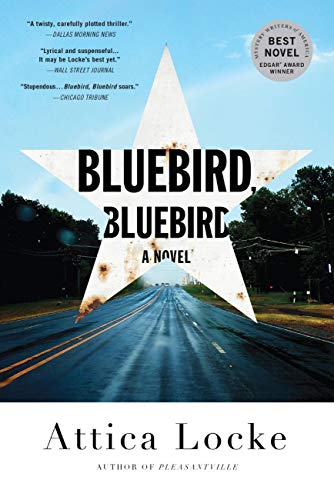
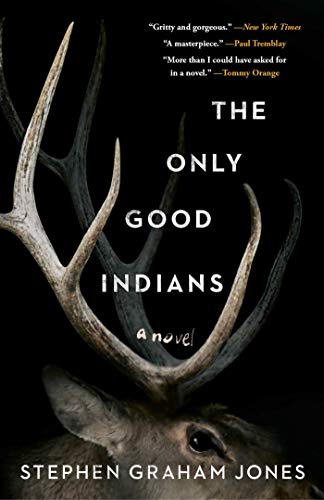
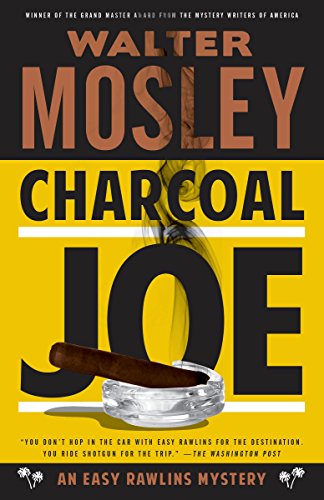
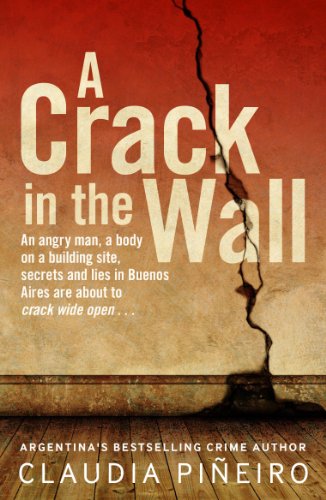
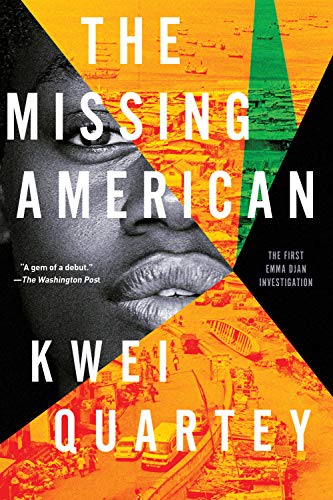
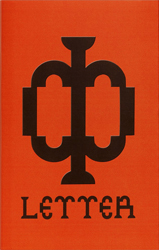
 Why register matters
Why register matters